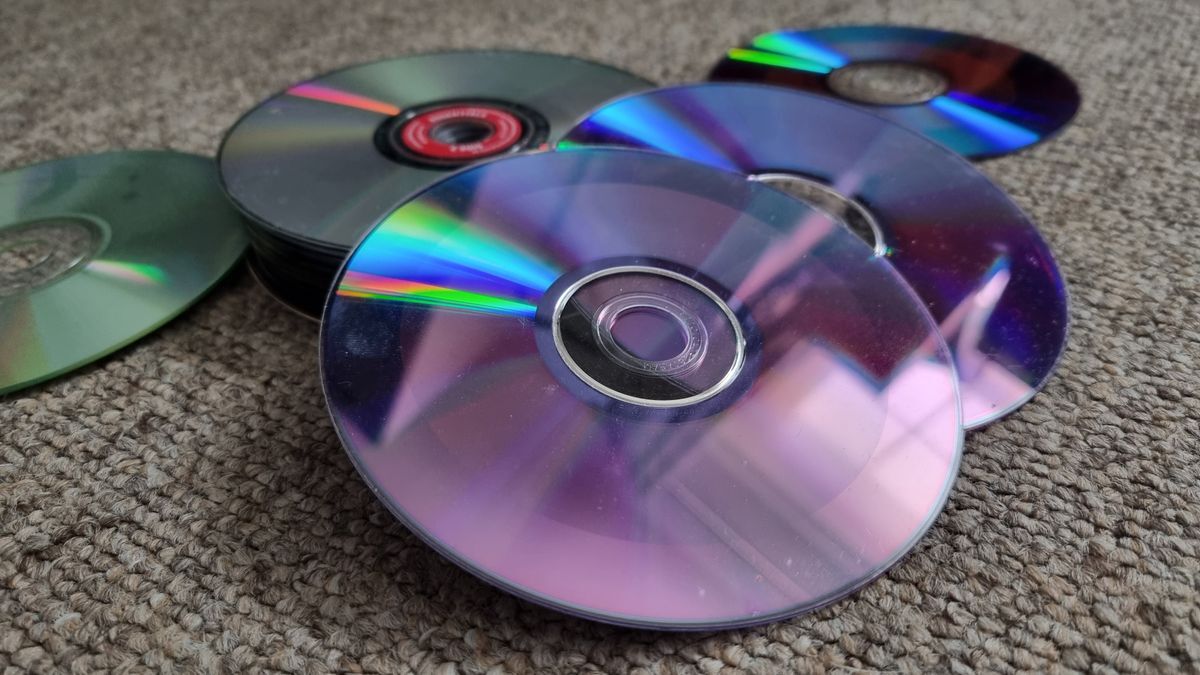The discs are said to be highly stable, with an expected lifespan of 50 to 100 years. That’s a huge leap over current data centre HDD based storage systems, which generally move data over to new devices every five to 10 years to avoid data-loss from ageing drives.
Dont most data centres actually use tape storage for achival data?
Many do, for long term archival at least, but tape still has only 30 years lifespan and has other limitations. As an example, the media wears relatively quickly when in use, so if there’s a need to access the data even relatively often optical media would make sense. That’s often not an issue in archival though.
The article is very light in detail but from what I’ve gathered they may only be in the proof of concept stage and looking for outside investments. This tech is years off which is basically a deathknell for anything targeting a today problem with a tomorrow solution. In data at least.
Longevity, Speed, Density… pick 2. This assumes rewritable media, of course… because we need feature parity. The current project appears to have at best 1 of the big 3.
Non magnetic media makes a lot of sense- but if we’re dealing in lasers we are limited by the spectrum of light. Sure you can probably focus a beam to burn into a layer 2, 15, 70 layers beneath another (and that’s impressive) … but explain how you plan to read that through the other layers. Explain how you will do it /quickly/. Explain how you won’t compromise the other layers receiving diffused light. I may end up being wrong but my gut tells me this is a research team just looking for venture capital.
This assumes rewritable media, of course… because we need feature parity.
I’d be fine without, if you can just append records to overwrite or delete previous files. For backup or long term storage RW doesn’t matter that much. Or at least, I’d much rather have a cheaper non rewritable disc with a capacity like this.
Getting Zip Drive vibes from this.
After it crapped out, I used a zip drive as a coaster for a while in college.
Optical discs are not really meant for longterm storage on their own. Disc rot is a real thing.
Edit: I should have gone into a bit more detail. Yes, optical storage discs CAN be okay for longer term storage. But it depends on quite a few factors. The material itself has to be long lasting, the manufacturer has to have good quality control, and the end client should store it in a controlled environment. It’s it better or worse than alternatives. No idea without the actual data. It certainly has better density.
Another associated benefit would be the minimisation of data migration. The discs are said to be highly stable, with an expected lifespan of 50 to 100 years. That’s a huge leap over current data centre HDD based storage systems, which generally move data over to new devices every five to 10 years to avoid data-loss from ageing drives.
This is also meant to compete with LTO tapes. To my knowledge, the current best is LTO9 with a max uncompressed storage of 18TB per tape.
100-200 TB on a disc would be huge as they could replace 5-11 tapes with one disc and have better random seek times.
Hopefully this does not end up like HVD which was promising but ended up dying due to the initial cost:
There are technologies being developed for data archiving that have densities and longevity orders of magnitude higher than this.
I don’t see this ever leaving the lab.
Optical discs are not one thing, they’re a variety of different technologies. This particular one is predicted to last many decades.
The best medium for long term data retention is etching words in granite.
Stamping glyphs into clay seems to be pretty decent, too. If you don’t have access to granite. Especially in this economy.
Depends on what material they switch to. They could be using some new polymer or something, hence the longer lifespan.
True. It also depends on manufacturer quality controls and end client storage environment. I just recall that being a big selling point for DVD and CDs only for some people to find unreadable garbage after a decade. Or at least not easily readable garbage.
That was my question about this. It can store a lot of data, great! But will the media last 10 years or more? For real long term storage it needs to last decades.
From the article:
Another associated benefit would be the minimisation of data migration. The discs are said to be highly stable, with an expected lifespan of 50 to 100 years. That’s a huge leap over current data centre HDD based storage systems, which generally move data over to new devices every five to 10 years to avoid data-loss from ageing drives.
Thank you! I’ll admit I hadn’t read the article.
You’re welcome.
*Some optical discs. Others not so much, it’s not an inevitability… M-DISC, introduced in 2009, has a rating with proper storage of one THOUSAND years. They are even readable and writable by most regular DVD/Blueray drives!
https://en.wikipedia.org/wiki/M-DISC
I absolutely cannot wait for these new discs to be available!
These aren’t going to be leaving the lab, so I wouldn’t get my hopes up.
I wouldn’t be so sure, LTO is big business. A niche market sure, but a multi-million dollar market nonetheless.
No Gina, I’m not happy to see you. I just have a very big disc in my pocket.
VBD sounds like some sort of advanced std.
They missed their chance at marketing a BFD… or even BBD (big byte disc).
BBC big byte container
The expansion of that abbreviation feels like an idiocracy joke.
“We store the computer data on VBDs.” “What is a VBD?” “Very large disc^tm. It’s pretty advanced.” And then they just bring out an insanely large disc.
And they’re completely scratch-proof, right? I remember losing a CD-RW here and there (I’m old) because of scratches from everyday use. It’s fine when they only hold a few gigs, but 200 terabytes better be damn indestructible…
Put it in a minidisc-like plastic case to basically make it a cartridge and we’re in business.
Edit: oh, long term storage. My bad. Still, durability seems pretty essential.
I know it’s impractical, but I’m still a bit disappointed that they didn’t mean something the size of a laser disc.
That’s pretty exciting!
Removed by mod
BetaMAXray
BluBetaMAXrayHD
Physical media making a comeback? Sign me tf up
Seems the researcher’s concept is to have data on both sides of the disc and have it sitting in a datacenter. I don’t really buy the use case.
I’ve worked for companies backing up 100s of petabytes a year on tape. This is audit and log data they are required to keep as well as business data.
If these discs are significantly cheaper than tape, then there’s your use case.









